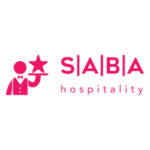 What is really meant when we refer to being a ‘professional’? How do we define what we expect of a professional? What are the traits and characteristics of professional behaviour? Do we recognise a hospitality professional when we see one?
What is really meant when we refer to being a ‘professional’? How do we define what we expect of a professional? What are the traits and characteristics of professional behaviour? Do we recognise a hospitality professional when we see one?
These are all perfectly legitimate questions and it is perhaps the last that is the most obvious. Recognition comes from observation of the characteristics and behaviour of an individual. If they behave in a way that meets our expectations of being a ‘professional’ then we will in our own minds recognise them as a professional. We will make that judgement sometimes without even engaging them in conversation and certainly without understanding what their qualifications may be. As professionals ourselves we have an intuitive understanding of recognising a fellow professional. Standing in the front lobby of a hotel can provide ample evidence of the professionalism of the property which in turn is a reflection of the professionalism of the leader.
Yet being a member of a profession as opposed to behaving professionally often requires a level of knowledge and formal qualifications that would be tested by the professional body to which they have aspired to become a member. In the hospitality industry we have a tendency to recognise professionalism by the behaviour they show in dealing with their colleagues, in dealing with their customers and guests, and their general behaviour and presence, not by looking for membership or qualifications or a plaque on the wall.
One of the characteristics we would observe in making a judgement about professionalism is the confidence that is clearly demonstrated through behaviour. It is this confidence in dealing with a wide variety of recognised and known situations as well as the unknown that is one of the main considerations in our judgement. Confidence comes from the development of skills, knowledge and understanding based on different forms of learned behaviour including learning from experience. Knowledge, especially professional knowledge, provides the basis of confidence in dealing with familiar and unfamiliar contexts, reaching decisions and implementing them. Confidence is the result of engagement with the professional workplace, analysing and understanding situations and problems and observing and learning from the outcomes.
Professionalism is recognised through confident behaviour, but to try and define what we mean by professionalism is a complicated concept with no fixed meaning. As a term it can be applied at all levels within the industry from the professional chef, the professional waiter, the professional manager, the professional GM. It is not, as with some other industries, a prerequisite to be a graduate nor to be operating at a particular level within the organisation. It is the application of knowledge and skills relevant to the role of the individual that is fundamental in developing the ‘professional wisdom’ that is recognised by peers and the public.
Other traits and characteristics that are also likely to apply to the individual recognised as being professional are: the autonomy to be able to make independent decisions, the collegiality of working together in a professional team and the ability to provide a high level of service. Added to this could be the ability to be able to pass on professional knowledge and skills to others.
There is no one single professional qualification that provides a route of entry into being recognised as a hospitality professional. There is no ‘bar exam’ as would be required for lawyers, but achieving learning and knowledge does provide that essential underpinning and understanding that helps in building confidence. It is an important component and one part that supports the development of the professional. For those embarking on any form of professional management development, acquiring new knowledge and skills helps to build confidence that in turn enriches the professional experience that contributes towards making a hospitality professional.
The author is grateful to Dr John Dunning of the Sheffield Business School for his insights and the opportunity to discuss and debate this topic at the recent Council for Hospitality Management Conference held in Bournemouth.
About the author

Professor Peter Jones is the Dean of the eHotelier Academy. With a distinguished career in hospitality, education and training, Peter has been involved with national and international projects with clients involved in hospitality education. Peter is a Director of the Edge Hotel School and of Hotel Future, a new education and training initiative in Greater Manchester and is a Visiting Professor at the University of Derby. He was also awarded a Member of the Order of the British Empire for services to the hospitality industry.
































